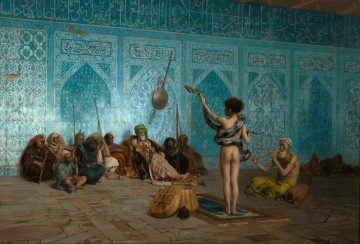 Adam Shatz in The New York Review of Books:
Adam Shatz in The New York Review of Books:
Orientalism in the age of Trump has no interest in promoting democracy or other “Western values” because these values are no longer believed, or they’re regarded as an inconvenient obstacle to the exercise of power. This new Orientalism speaks in the language of deals and, more often, that of force and repression. It keeps Arab despots in power and angry young men of Arab origin in prison.
Unlike the Orientalism that Said analyzed, it does not require experts like Bernard Lewis and the late Fouad Ajami, a Lebanese scholar who became Dick Cheney’s favorite “native informant.” Say what you will about Ajami and Lewis, they were writers and intellectuals. Today’s Orientalist is more likely to be a number-cruncher who studies police reports on terrorist suspects and calculates degrees of radicalization.
The older style of Orientalism—though it has not entirely died out—is less useful to those in power because it is based on deep historical and literary learning of a kind that is anathema to an American president who does not have the patience for books and who is ruled by his impulses. The Internet and social media have stripped those once regarded as experts of much of their authority, and has in turn empowered non-experts, those who parade anti-intellectualism as a virtue and even as a strength. The consequences of this critique of expertise have proved to be at best ambiguous, since it can lend itself to ignorance, intolerance, and irrationality, rather than provide a basis for the counter-hegemonic knowledge that Said envisioned.
More here.
